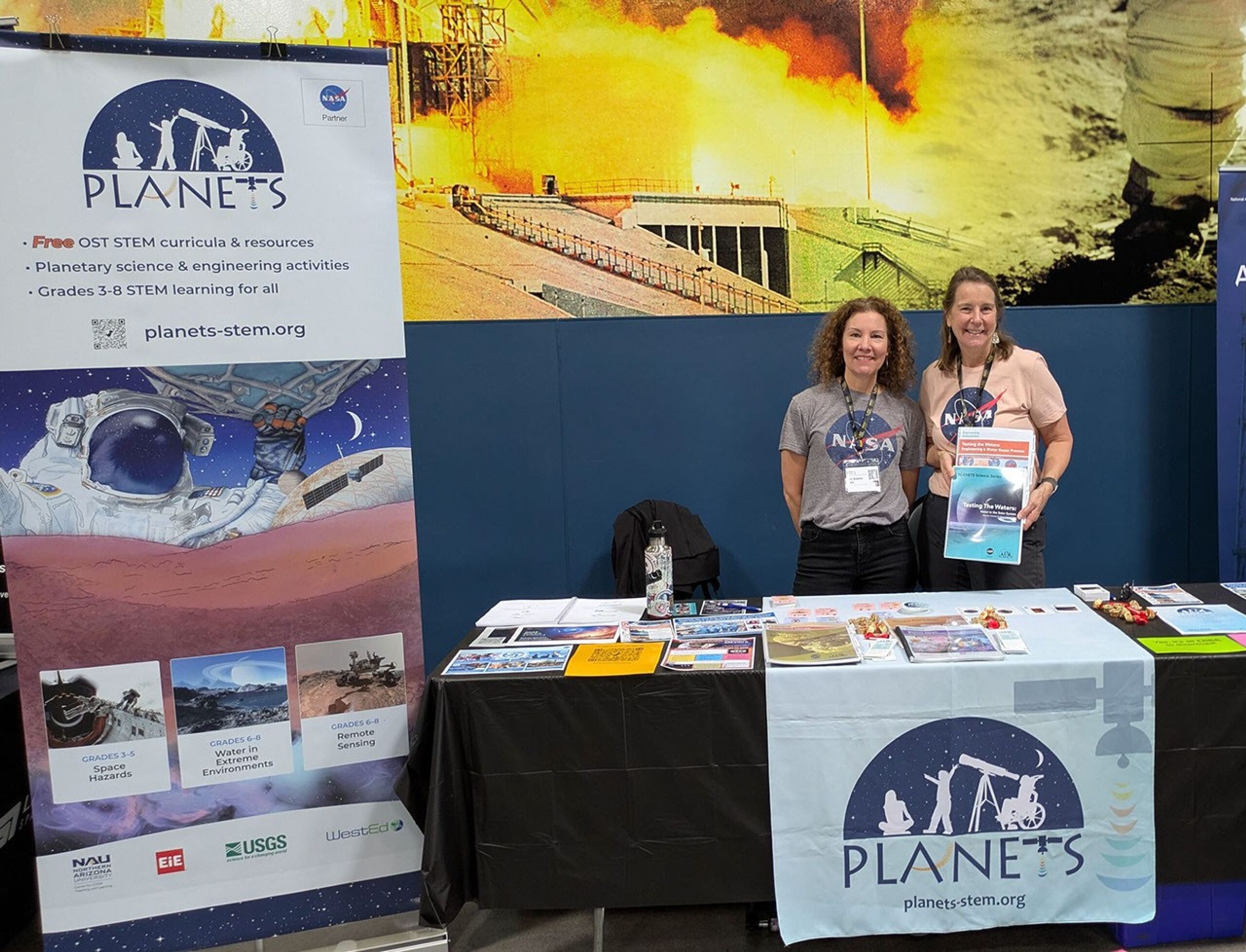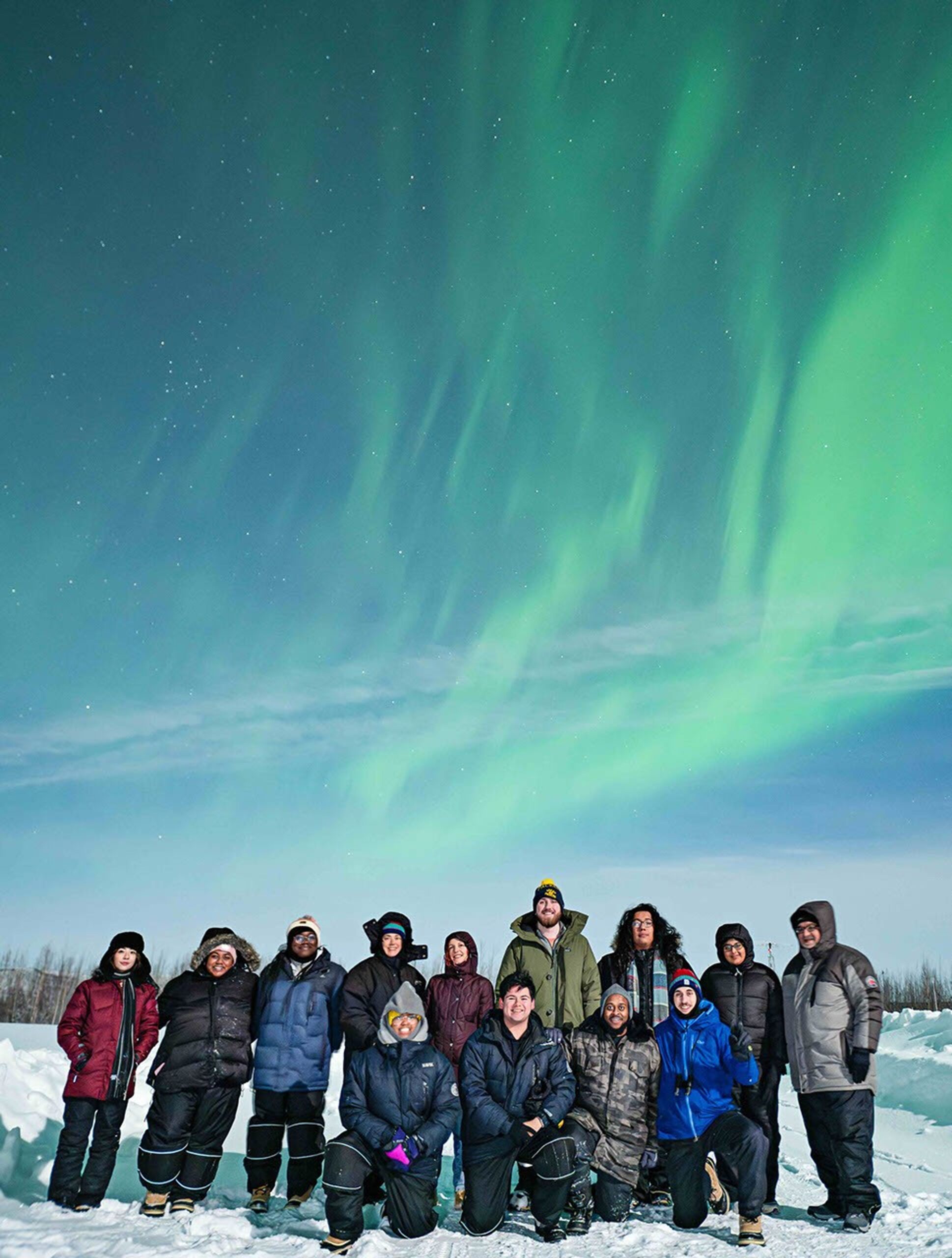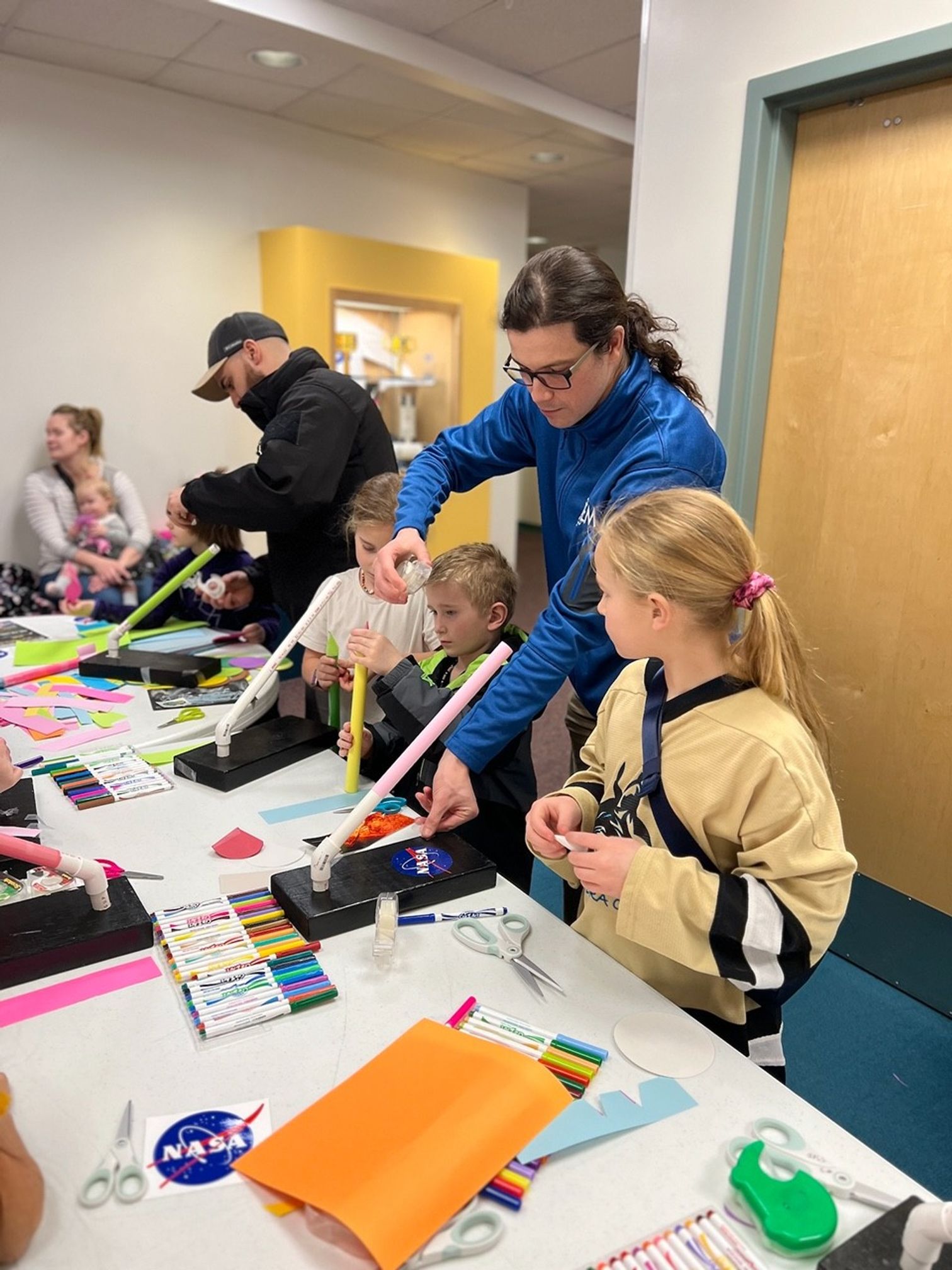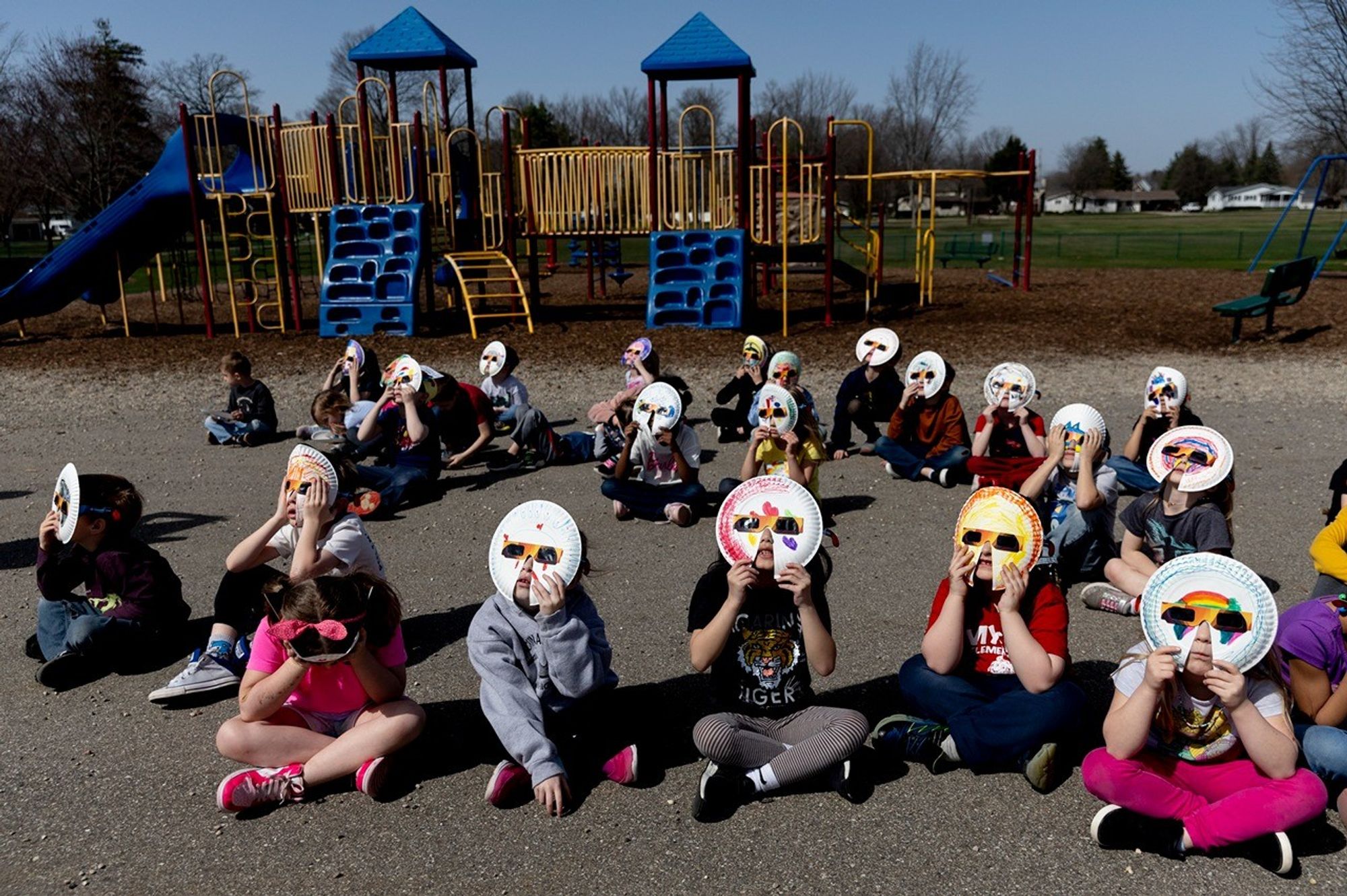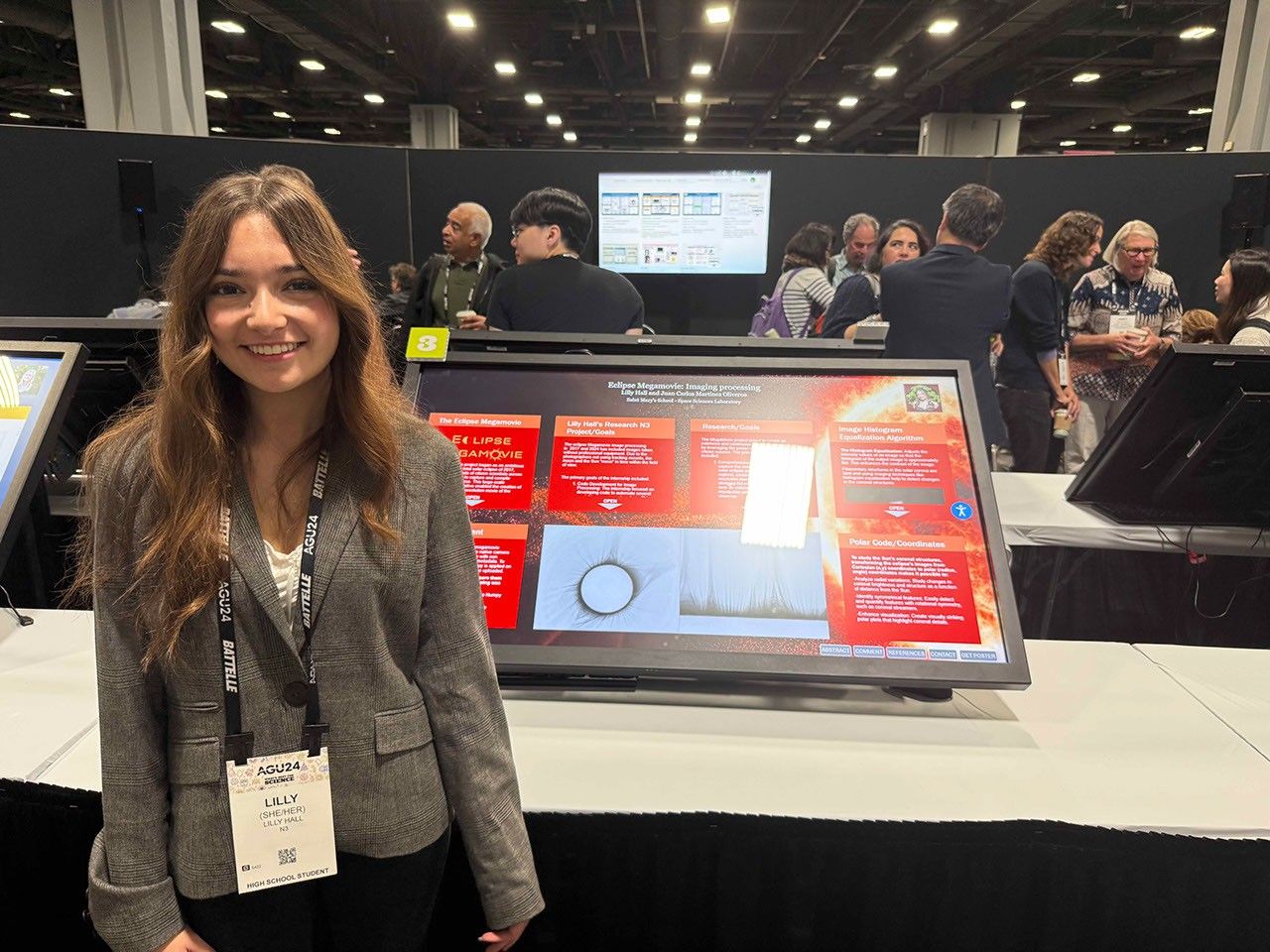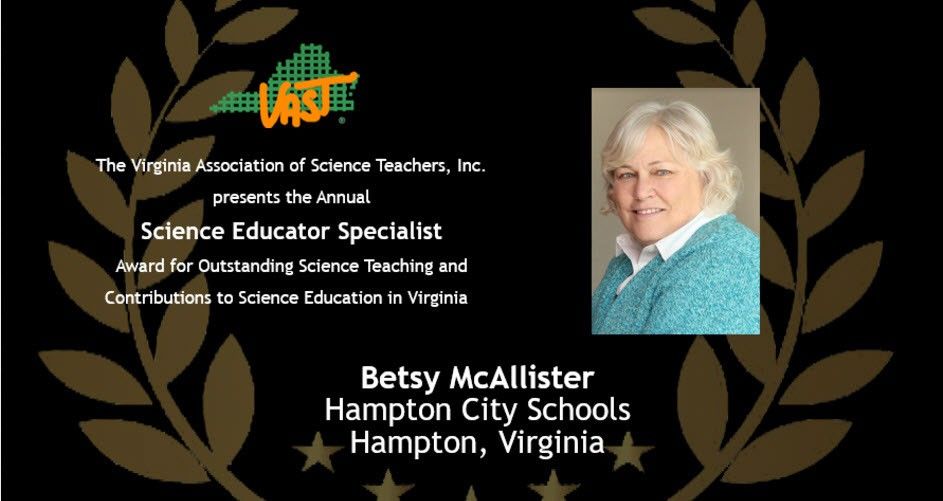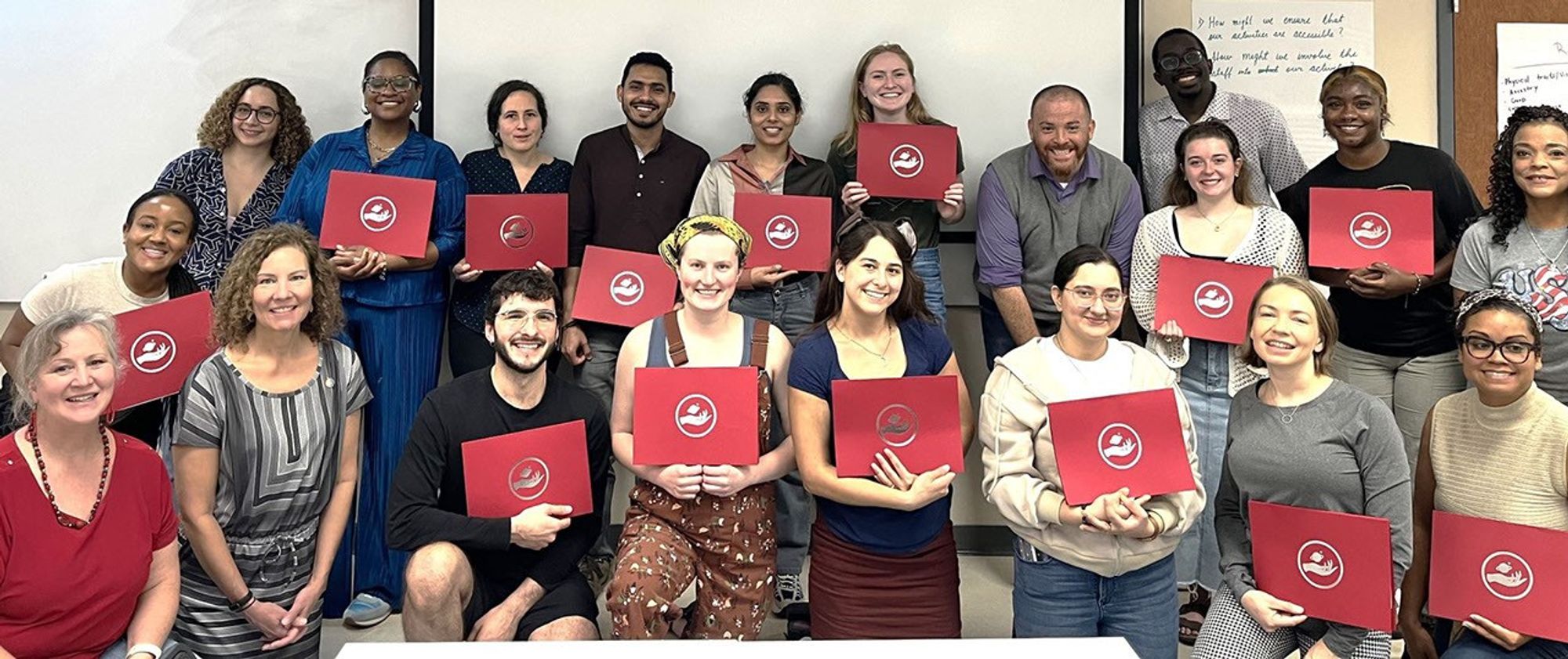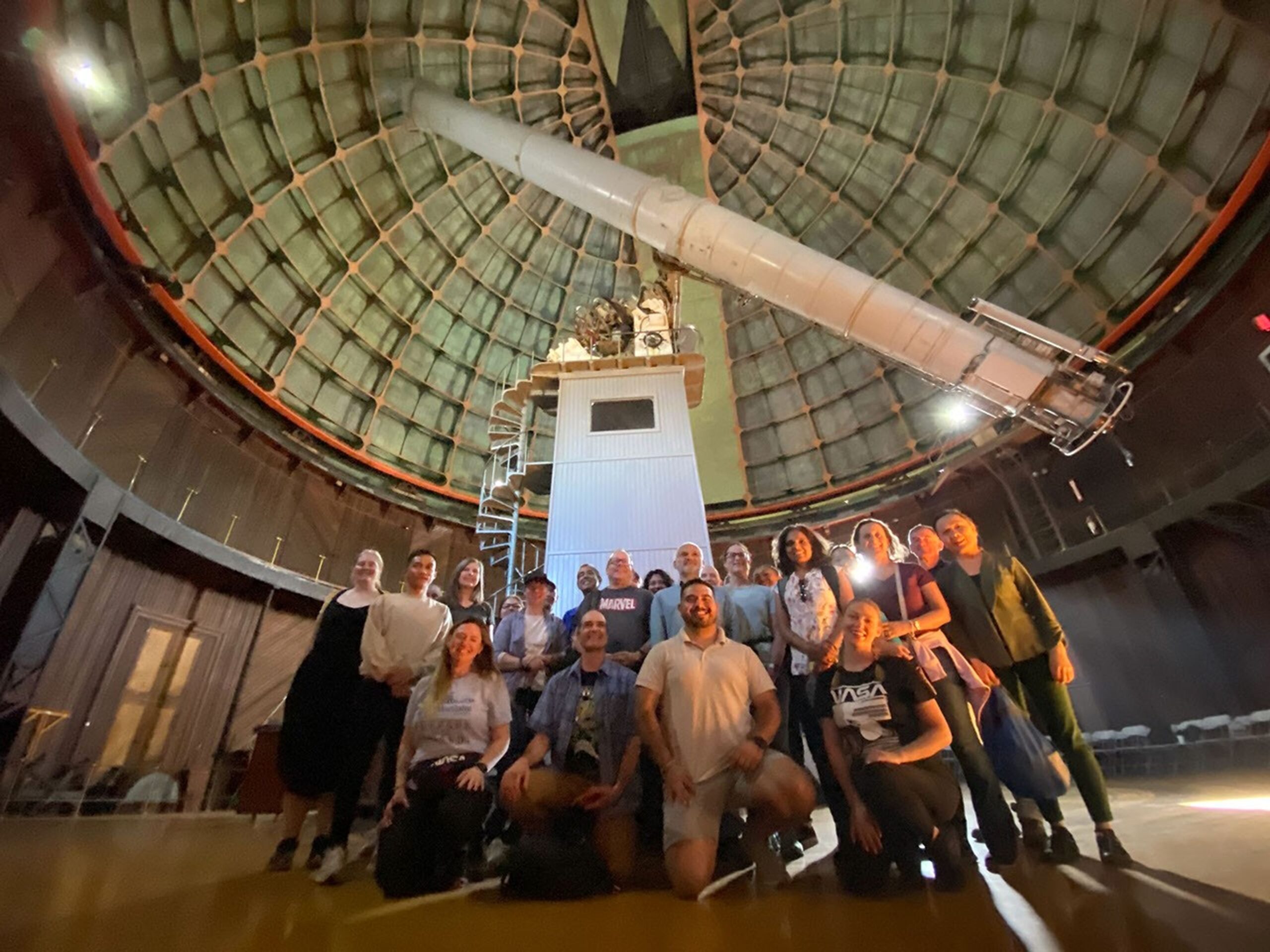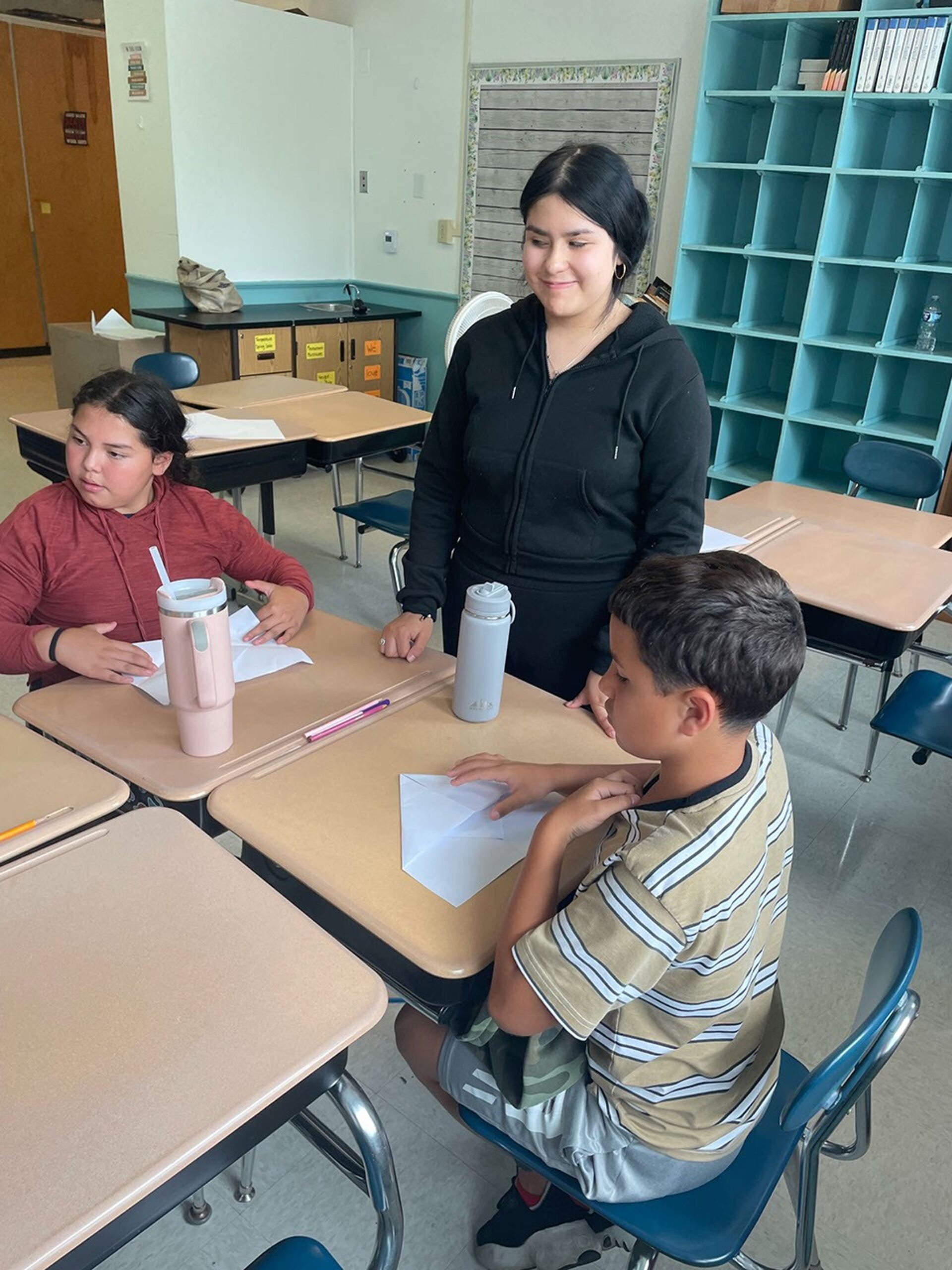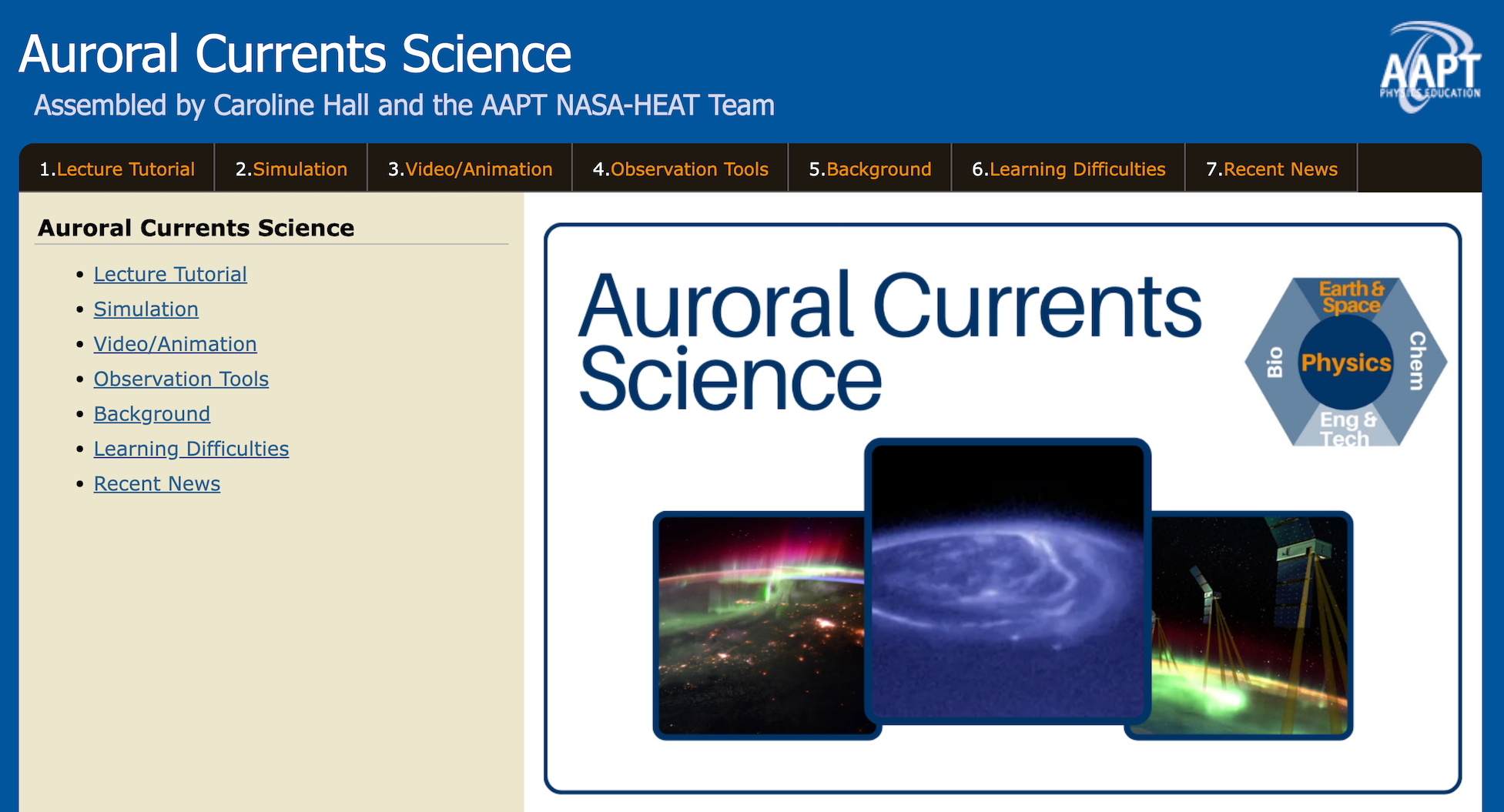Explore This Section Science Science Activation Sharing PLANETS Curriculum… Overview Learning Resources Science Activation Teams SME Map Opportunities More Science Activation Stories Citizen Science 2 min read Sharing PLANETS Curriculum with Out-of-School Time Educators Out of school time (OST) educators work with youth in afterschool, community, and camp programs. Science, Technology, Engineering, and Mathematics (STEM) learning in OST can be challenging for multiple reasons, including lack of materials and support for educators. The NASA Science Activation program’s PLANETS project – Planetary Learning that Advances the Nexus of Engineering, Technology,…
Read MoreTag: Science Activation
Eclipses to Auroras: Eclipse Ambassadors Experience Winter Field School in Alaska
Explore This Section Science Science Activation Eclipses to Auroras: Eclipse… Overview Learning Resources Science Activation Teams SME Map Opportunities More Science Activation Stories Citizen Science 3 min read Eclipses to Auroras: Eclipse Ambassadors Experience Winter Field School in Alaska In 2023 and 2024, two eclipses crossed the United States, and the NASA Science Activation program’s Eclipse Ambassadors Off the Path project invited undergraduate students and amateur astronomers to join them as “NASA Partner Eclipse Ambassadors”. This opportunity to partner with NASA, provide solar viewing glasses, and share eclipse knowledge…
Read MoreAn Afternoon of Family Science and Rocket Exploration in Alaska
Explore This Section Science Science Activation An Afternoon of Family Science… Overview Learning Resources Science Activation Teams SME Map Opportunities More Science Activation Stories Citizen Science 2 min read An Afternoon of Family Science and Rocket Exploration in Alaska On Tuesday, January 28th, Fairbanks BEST Homeschool joined the Geophysical Institute for an afternoon of rocket exploration, hands-on activities, and stargazing inside a planetarium. This event was free and open to the public. Despite their frigid winter weather, 200 attendees were curious about the scientific endeavors of Alaska-based researchers alongside…
Read MoreNASA HEAT Student Activity Featured in TIME’s Top 100 Photos of 2024
Learn Home NASA HEAT Student Activity… Heliophysics Overview Learning Resources Science Activation Teams SME Map Opportunities More Science Activation Stories Citizen Science 3 min read NASA HEAT Student Activity Featured in TIME’s Top 100 Photos of 2024 On April 8, 2024, tens of millions experienced a solar eclipse from Mexico through the United States and into Canada. Astronomers, educators, and organizations had been preparing the public for this grand celestial event. Learning from engagement experiences in 2017, the NASA Heliophysics Education Activation Team (NASA HEAT) promoted an activity called…
Read MoreFirst NASA Neurodiversity Network Intern to Present at the American Geophysical Union Annual Conference
Learn Home First NASA Neurodiversity… Heliophysics Overview Learning Resources Science Activation Teams SME Map Opportunities More Science Activation Stories Citizen Science 2 min read First NASA Neurodiversity Network Intern to Present at the American Geophysical Union Annual Conference The NASA Science Activation Program’s NASA’s Neurodiversity Network (N3) project sponsors a summer internship program for high school students, in which learners on the autism spectrum are matched with NASA Subject Matter Experts. N3 intern Lillian Hall and mentor Dr. Juan Carlos Martinez Oliveros presented Lilly’s summer research project on December…
Read MoreNASA eClips Educator Receives 2024 VAST Science Educator Specialist Award
Learn Home NASA eClips Educator Receives… Science Activation Overview Learning Resources Science Activation Teams SME Map Opportunities More Science Activation Stories Citizen Science 2 min read NASA eClips Educator Receives 2024 VAST Science Educator Specialist Award On November 14, 2024, NASA eClips team member, Betsy McAllister, was recognized with the prestigious Virginia Association of Science Teachers (VAST) Science Educator Specialist Award at the 2024 VAST Annual Professional Development Institute. McAllister is an educator with Hampton City Schools in Virginia and Educator-in-Residence (EIR) at the National Institute of Aerospace’s Center…
Read MoreNASA Workshops Culturally Inclusive Planetary Engagement with Educators
Learn Home Science Activation NASA Workshops Culturally… Overview Learning Resources Science Activation Teams SME Map Opportunities More Science Activation Stories Citizen Science 2 min read NASA Workshops Culturally Inclusive Planetary Engagement with Educators From November 6-8, 2024, the NASA Science Activation Program’s Planetary Resources and Content Heroes (ReaCH) project held a Culturally Inclusive Planetary Engagement workshop at the Bradley Observatory at Agnes Scott College in Atlanta, Georgia for the space sciences community, including planetary science, astrobiology, astronomy, and heliophysics professionals, as well as invited education specialists. To practice the…
Read MoreAstronomy Activation Ambassadors: A New Era
Learn Home Astronomy Activation… STEM Engagement at NASA Overview Learning Resources Science Activation Teams SME Map Opportunities More Science Activation Stories Citizen Science 3 min read Astronomy Activation Ambassadors: A New Era The NASA Science Activation Program’s Astronomy Activation Ambassadors (AAA) project aims to measurably enhance student Science, Technology, Engineering, and Mathematics (STEM) engagement via middle school, high school, and community college science teacher professional development. In 2024, AAA transitioned its focus to the development of an Astronomy Academy with varying levels of extent and intensity available to more…
Read MoreIntegrating Relevant Science Investigations into Migrant Children Education
Learn Home Integrating Relevant Science… Earth Science Overview Learning Resources Science Activation Teams SME Map Opportunities More Science Activation Stories Citizen Science 3 min read Integrating Relevant Science Investigations into Migrant Children Education For three weeks in August, over 100 migrant children (ages 3-15) got to engage in hands-on activities involving blueberries, pollinators, and eDNA as part of their time with The Blueberry Harvest School (BHS). BHS is a summer school program for migrant children whose families work in Washington County, Maine during the wild blueberry harvest season. The…
Read MoreBundling the Best of Heliophysics Education: DigiKits for Physics and Astronomy Teachers
Learn Home Bundling the Best of… For Educators Overview Learning Resources Science Activation Teams SME Map Opportunities More Science Activation Stories Citizen Science 3 min read Bundling the Best of Heliophysics Education: DigiKits for Physics and Astronomy Teachers For nearly a decade, the American Association of Physics Teachers (AAPT) has been working to bring together resources through its DigiKits–multimedia collections of vetted high-quality resources for teachers and their students. These resources are toolkits, allowing teachers to pick and choose interesting content to support their instruction. As a partner with…
Read More